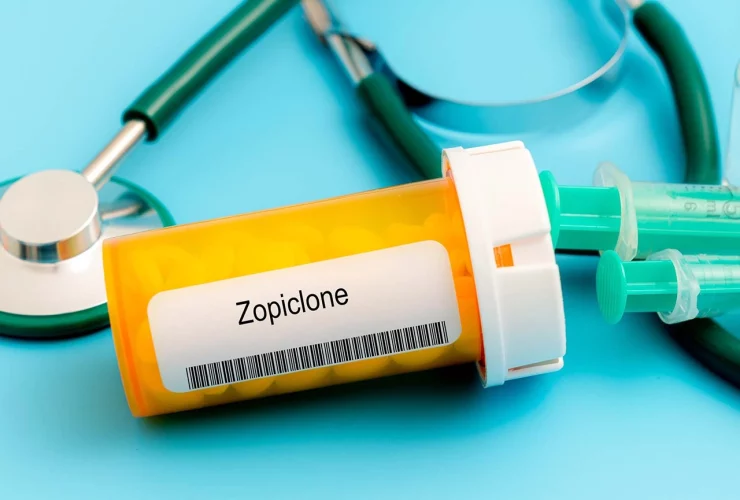How Long After You Stop Drinking Does Your Body Heal?
First off, congratulations on finally taking the bold step to clean yourself up and get your life back. Or at least thinking about it. The decision to quit alcohol is not easy, and most people won’t ever attempt it. However, it’s one you need to make if you want to be free of your drinking habit. It requires you to come to terms with your dependency on alcohol and make up your mind to let go of it.
Most times, it’s easy to think, “I’m going to quit drinking now!” when put on the spot. However, it takes tremendous willpower to follow through with the statement. Then again, quitting alcohol is a journey, not something you do in a couple of days.
During this journey, your body gradually heals after you stop drinking. But, it’ll be naive to expect the ride to be entirely smooth.
Sometimes, you may start and then find yourself indulging in your drinking habit after a little while. It’s not easy to drop the bottle and never pick it up again. The period your body takes to heal after you stop drinking will be especially trying for you.
But you’ll need to hold firm to ensure full recovery from your alcohol addiction. That said, let’s consider the healing timeline for your body and what you can expect during that time.
The Timeline of Alcohol Addiction Recovery
How long does it take to heal after you quit drinking? There’s no straight answer to this question because your alcohol addiction healing period ultimately depends on your body and mind. It’s also a function of factors like your addiction level to alcohol, the level of damage done by the alcohol to your body etc.
Let’s quickly examine all these factors in detail below.
Your Body, Your Mind and Your Commitment
When talking about your body, we’re simply referring to the capability of your body to heal itself. How fast is your body’s immune system to get rid of impurities and other undesirable effects of alcohol? This factor determines to a large extent the timeline it’ll take your body to heal after you stop drinking. The faster your immune system can work, the shorter your healing time.
“Your mind,” on the other hand, refers to the conscious you, everything that goes on your mind. It encompasses your habits and the level of control over your behaviour and attitude. When dealing with addiction, your body often responds to the state of your mind. If you sit around wallowing in self-pity without taking deliberate action, your body will work with the same energy.
The state of your mind also influences your commitment to what you have set out to do. The level of your commitment to stopping alcoholism will, in turn, determine how fast your body works on healing itself. The mind-body mechanism is always at the forefront in matters regarding addictions. That’s why many alcohol addiction treatment centers advocate mental wellness in the same vein as physical wellness.
Your Level of Dependence on Alcohol
As it is with all forms of addictions, the greater your dependence on a substance, the harder it’ll be for you to quit. But it doesn’t end there; even after you manage to stop, it’ll take longer for your body to adjust.
One of the significant effects of alcohol on the body is the more you consume, the more of it you need. You can never get enough of it, and every time you increase the amount you take, your body adjusts accordingly. It begins to demand more again within a short duration, and the cycle continues.
As such, when you decide to quit and embark on the mission to get clean, your body goes, “No, I don’t wanna do that.” Therefore, the more your body has come to depend on alcohol, the harder it’ll be for your body to heal even after you stop drinking completely.
The Level of Damage Done By The Alcohol
Alcohol can have several adverse effects on your physical, mental, and general wellness. Empirical studies associate long-term use of alcohol with a host of health issues and damage to organs of the body. Some of the most prominent conditions that can result from continuous alcohol use include:
- Brain damage (damage to neurons in the brain and alteration in the activities of neural pathways)
- Hypertension, Cardiomyopathy, Arrhythmias and a host of several other cardiovascular conditions
- Liver disease such as Cirrhosis of the liver
- Alcohol-induced ulcers and so on
Some of the medical conditions resulting from alcohol addiction are reversible, while others are permanent. You may be able to quit alcohol successfully, but your body may never thoroughly recover from the damage. Then you may have to live with health conditions that resulted from alcohol use for a very long time.
Related Article: 10 Tips to Beat Alcohol Addiction
How Long To Heal When You Stop Drinking?

The short answer to how long it takes your body to heal is when you stop drinking is anywhere between a few days to several months. As we implied earlier, the effects of consistent alcohol consumption are cumulative.
These effects can have lasting impacts on your body. Nonetheless, you can speed up the alcohol addiction healing process with appropriate medical care, hygiene, and exercise.
You’d need medical help when quitting alcohol, especially if you used to be a heavy drinker. Let’s assume you’re starting your recovery journey with appropriate professional medical assistance. If you already have all that in place, you can expect the following as your body heals when you stop drinking alcohol.
The First Week – Acute Withdrawal Symptoms
The first week of your addiction recovery journey will have you experiencing withdrawal symptoms. The symptoms can range from mild to excruciating, depending on your level of alcohol dependence. They’ll typically start sometime within 24-48 hours after you take your last drop of alcohol. By that time, your blood alcohol content will drop to zero, and your body will begin to demand it again.
During the first couple of days to the end of the first week, you’ll experience a varying range of discomfort. The general symptoms include nausea, mood swings, anxiety, shakiness, fatigue and palpitations. You’ll most probably experience the peak of these symptoms within 72 to 96 hours of quitting alcohol. After that, the effects should subside, and that’s when the healing period begins.
By the end of the third day after you quit alcohol, your brain will begin to regenerate lost cells. You may also sweat more than usual when sleeping within that period. It’s a sign that the body is trying to rid itself of the alcohol. You’ll also probably feel a constant sense of anxiety during this period.
Overall, the first week will be your most trying period as the body heals after you stop drinking alcohol. However, appropriate medical assistance will provide the support you need to get through successfully.
The Next Few Weeks – Post-Acute Withdrawal Recovery
Most withdrawal symptoms will subside by the beginning of the second week. By then, your body will gradually begin to regain its normal function. First off, nausea and vomiting will reduce as your digestive system balances out. The insomnia symptoms will also reduce significantly, and you’ll start sleeping better.
You should have more clarity and coherence with your thought processes by the end of the first month. Also, the regeneration process for the neurons in your brain will be in full swing at this point. And as your brain heals itself, your anxiety and depression should also subside. However, it may take a little longer to reach complete restoration of brain function.
By the third or fourth week, you’ll begin to notice significant improvements in your physical state. For example, your eyes should become clearer and brighter. Your skin will also look healthier as you begin to get more sleep and eat healthier food.
While you may feel a constant lethargy, mood swings and occasional cravings, they’re all part of the recovery process. All these seemingly adverse effects show your body is trying to heal after you stop drinking. It’s gradually learning to function normally and produce appropriate levels of neuro stimulants like dopamine.
However, you also need to take extreme care at this point as it’s the period where several people relapse. It’s a stage in your recovery where you’ll be very vulnerable and may slip into the “Just one more time” trap. You’ll convince yourself you’ll only take one more time and never again, but it won’t stop there. You need to be particularly cautious as this period is vital in cementing positive reinforcement for abstinence.
Regardless, don’t fixate much on the negatives you may experience at this stage. Instead, be proud of yourself for coming this far without a drop of alcohol. Adopting such a positive outlook will help your mental recovery process.
Several Months/Years post Alcohol Addiction.
Addiction recovery is a long-term commitment. Like we said earlier, quitting alcohol for good is a journey. You’ll still be travelling on this path several months/years after you stop drinking and your body heals up. You can’t afford to get complacent, as one wrong decision can be the trigger to relapse.
Watch out for cues that remind you of alcohol use. Take note of factors that led to your addiction in the first place. Identify the situations which caused you to find comfort in alcohol in the past and avoid them. Never use alcohol as a coping mechanism and if possible, never take alcohol again. That’s the best way to ensure you never fall back into your old habits.
Benefits of Quitting Alcohol
By the time you’re into your 4th week without alcohol, your body will be making significant progress as it heals itself. There’ll be noticeable improvements in your mental health. You’ll also enjoy some additional benefits of sobriety, which will significantly improve your physical wellness. Some of those benefits include:
- Up to 20% reduction in liver fat deposit
- Decreasing levels of harmful cholesterol
- Lower blood sugar levels
- Better concentration
- More thought clarity and coherence
- Improved sleep quality
Also, according to Healthline, there are several long-term benefits you get to enjoy after you stop drinking and allow your body to heal. Some of those advantages include:
- Reduced risks of cardiovascular diseases
- Decrease risk of cancer
- Weight loss
You can achieve all of these within a short time just by quitting alcohol. However, keep in mind that you’ll still experience the urge to drink at this stage. The temptation seldom goes away early or easily.
With time, it gets easier to deal with the urges. You’ll be well beyond the worst by the end of your third month of abstinence. At this point, you should be very much above your cravings. You may experience occasional episodes of anxiety, mood swings and other withdrawal symptoms. However, they’ll be infrequent and a lot easier to manage.
Also, at this point, it’ll be a good idea to join a support group and get encouragement from other fighters like you. Regardless, you should notice a significant improvement in every aspect of your life. You will be a lot better both physically and mentally, and it should reflect in your overall conduct.
Related Article: Does Alcohol Rehab Work?
Summary
Now we’ve established the timeline it takes for your body to heal after you stop drinking and what you can expect during the period. You should prepare accordingly. Get your act together and seek alcohol addiction treatment where you can find it. You’re in for a long bumpy ride. But trust us, you’ll love where the journey takes you.
Ready to stop drinking but not sure where or how to start? Check out our alcohol addiction treatment services at Inspire Change Wellness Centre today. We offer medically supervised detox and addiction recovery programs for all those seeking to get clean. We’re only one call away!



